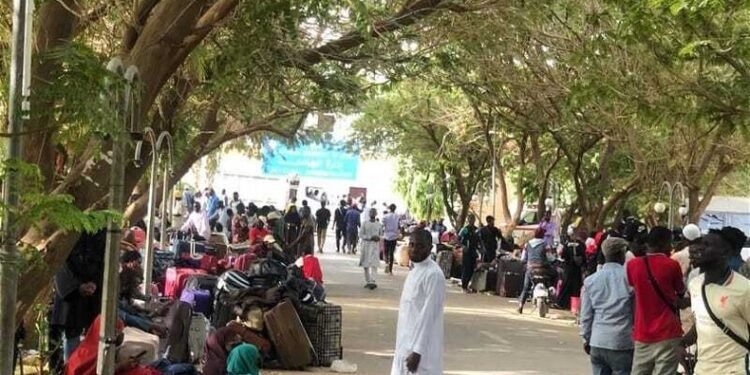The Voluntary Humanitarian Return (VHR) programme, designed to assist migrants in crisis situations, helped evacuate vulnerable individuals, including 64 women, 36 children, four infants, and several individuals with health conditions.
Safe return to Nigeria
A chartered flight, marking the first repatriation mission since the crisis in Sudan began, landed at Mallam Aminu Kano International Airport on 27 February 2025.
Upon arrival, Nigerian government officials and humanitarian workers warmly received the returnees, ensuring they were provided with comprehensive post-arrival support.
The returnees received a range of essential services, including:, Counselling and Psychological Support, Medical Assistance, Transportation to Their Final Destinations
Additionally, IOM pledged to provide reintegration support tailored to each returnee’s specific needs, helping them rebuild their lives in Nigeria.
The returnees recounted the severe hardship they endured in Sudan due to the war.
Bashir, one of the returnees, described the harrowing experience:
“After the war, we found ourselves out in the open with no accommodation and no food. Things kept getting tougher, and the problem was that there was no hope because the war kept going on. We are grateful to be back home.”
The Sudanese conflict, which erupted in 2023, has resulted in the displacement of over 12 million people, including migrants who lost their homes, documents, and belongings.
According to Mohamed Refaat, IOM Sudan’s Chief of Mission:
“Migrants who have transited through or are living in Sudan since the conflict began have found themselves stranded as the humanitarian situation deteriorates. For many, Voluntary Humanitarian Return remains the best option for a safe journey home.”
The International Organisation for Migration continues to play a vital role in assisting displaced individuals, ensuring they receive safe passage, humanitarian aid, and reintegration support.
As the Sudanese crisis persists, more Nigerians and other migrants may require assistance in returning home or relocating to safer regions.
The successful repatriation of these 140 Nigerians marks a crucial step in ongoing humanitarian efforts, but the need for long-term solutions to the crisis remains urgent.









